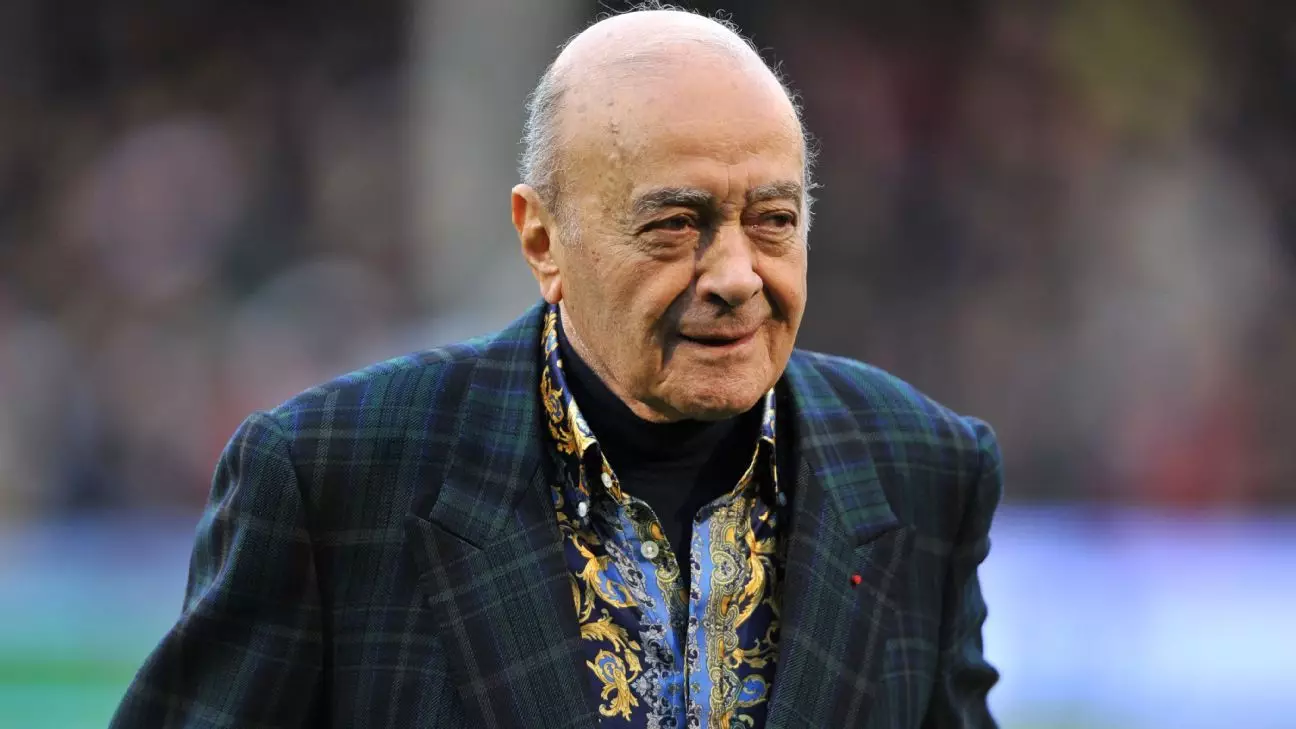In an unsettling revelation, Ronnie Gibbons, the former captain of Fulham Women’s team, has publicly accused the late Mohamed Al Fayed of sexual assault during his ownership of the football club. Gibbons recounted her experiences to The Athletic, detailing two specific incidents that occurred in 2000, when she was just 20 years old. She stated that Al Fayed attempted to grope her and forcibly kissed her while inside his famed department store, Harrods. This testimony comes as a heartbreaking reminder of the vulnerability of women in professional settings, particularly in environments where power dynamics can lead to exploitation.
As societal conversations on consent and abuse gain momentum, Gibbons’ willingness to share her story sheds light on the darker side of sports culture. Despite the courage it takes to come forward, Gibbons expressed that revealing such personal trauma was necessary for her healing. Her assertion, that by speaking her truth she might alleviate years of shame and embarrassment, underscores the critical importance of validating and supporting the experiences of victims.
In response to these allegations, Fulham FC expressed their deep concern and empathy towards Gibbons. A statement from the club clarified their commitment to upholding a safe environment and actively condemned any forms of abuse. They affirmed their ongoing investigations into the impact of Al Fayed’s actions during his tenure at the club. This reaction reflects a broader movement within sports organizations to confront past failures regarding athlete safety and the safeguarding of women in specific contexts.
Fulham’s acknowledgment of the claims has set a precedence for a more transparent approach towards historical abuse allegations. As multiple women have come forward detailing accounts of misconduct, this signal of support is vital to encourage other victims to share their experiences without fear of retribution or disbelief.
The accounts shared by Gibbons are far from isolated incidents. Reports indicate that London police have received allegations from at least 40 women against Al Fayed, adding to claims layered within a troubling narrative. Such widespread claims of sexual misconduct elucidate a significant ongoing issue not only within sports but also within global power structures that often allow predatory behavior to persist unchecked.
The timeline of these claims, with some dating as far back as 2005, highlights the systemic failures that can enable such conduct to thrive. It calls into question the accountability measures in place for those in positions of power and reputation. In the wake of these revelations, it’s imperative that organizations like Fulham and beyond take actionable steps to prevent such abuses from occurring in the future.
Ronnie Gibbons’ allegations against Mohamed Al Fayed serve as a pivotal moment for introspection and change within sports and beyond. Her courageous speaking out is a testament to the struggles many face when confronting trauma, emphasizing a collective need for supportive environments for survivors. It invites an urgent societal reevaluation of how allegations are handled and the importance of listening to those who speak up. As the conversation around these accusations continues, let it lead us toward a future of accountability, healing, and reform.

